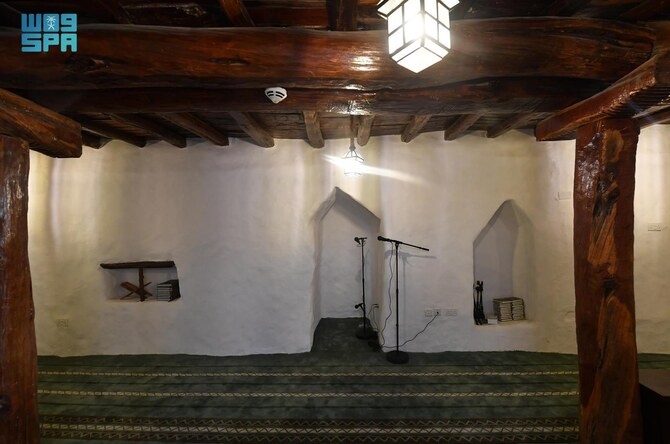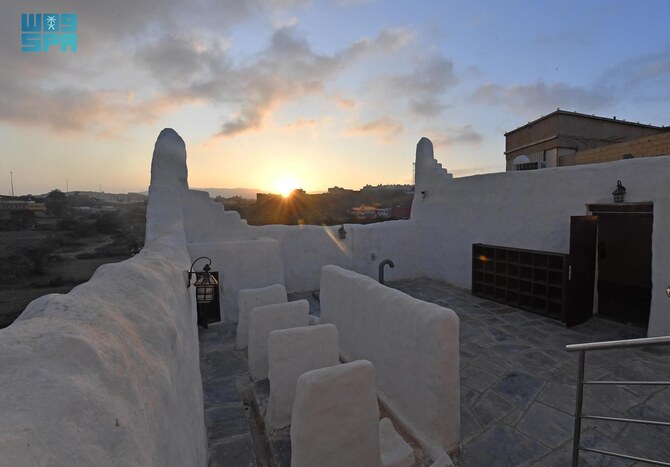RIYADH: The historic Al-Hosn Al-Asfal Mosque in the Asir region has been restored as part of a national project, the Saudi Press Agency reported.
The second phase of the Prince Mohammed bin Salman Project for the Development of Historic Mosques aims to protect Islamic heritage and highlight traditional architectural styles.
Built in 1760, Al-Hosn Al-Asfal Mosque was renovated to preserve its original design and geometric shape while restoring its sustainable features.
These include a rainwater collection system that stores water in the mosque’s reservoir and is used for ablutions, the SPA reported.
The mosque, designed in the Sarat style, covers 134 sq. meters and can accommodate up to 32 worshippers.
A notable feature is the Al-Manzala room, traditionally used to host travelers. Its construction features stone walls, which reflect the upper mountain villages’ urban fabric.
Adorned with white plaster, the mosque stands out from neighboring buildings. The Sarat style’s urban patterns are influenced by climate, topography and culture.
It is one of 30 mosques in 13 regions in phase two, including six in Riyadh, five in Makkah, four in Madinah, three in Asir, and two each in the Eastern Province, Jouf, and Jazan. The Northern Borders, Tabuk, Baha, Najran, Hail and Qassim each have one mosque in the scheme.
Phase two follows phase one, completed in 2018, which restored 30 mosques in 10 regions. Saudi companies and heritage restoration experts are leading the development efforts, according to the SPA.



















